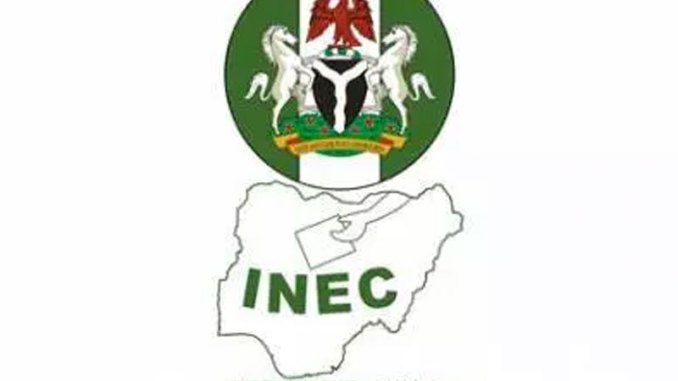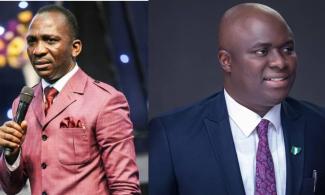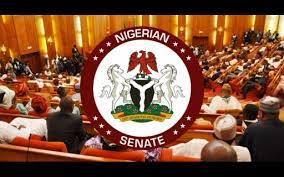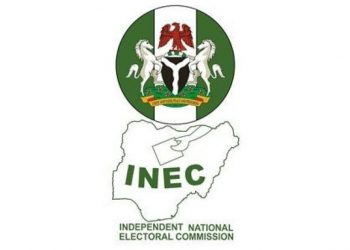The recent announcement by the Independent National Electoral Commission (INEC) that it has de-registered 74 political parties for failing to satisfy the necessary requirements has continued to elicit reactions from Nigerians.
In Benue State, many who spoke to the Next Edition hailed INEC for pruning down the number of parties saying the action had been long overdue while some others suggested that a two party system would have been preferable for easy management of election processes.
Prior to the de-registration, Nigeria had 92 political parties, which the pruning reduced to 18.
Reacting to the development on Friday, the Head Of Department (HOD), of Political Science at the Benue State University, BSU, Mr. Terkura Tarnande, commended INEC for taking what he called “a bold step” to prune down the number of political parties from over 92 to 18.
According to him, the number not only confused most Nigerian voters, but also made the electoral process very cumbersome.
“I think it is a welcome development. Actually, it made a charade of our democratic system to have as many as 92 political parties. It also made the electoral process too cumbersome. Quite a number of voters were confused because of the overwhelming number of our political parties. So, scaling down the number to 18 now is quite good. I commend INEC for taking that step. I welcome it.”
Tarnande, a Professor of Science said “A two party system will emerge naturally, as other parties get stronger, the weaker parties will naturally join the stronger ones and eventually, they will coalesce into two or three political parties.”
He recalled that “when President Babangida decreed a two party system, it started working, but that was not natural. But like it happened in APC where some political parties collapsed into one, that process will keep on unfolding and eventually, if we are going to have a two party system, then, it will evolve naturally. But I don’t think it should be decreed by fiat. We should allow the process to mature and build up itself.”
A Public Analyst, Mr. Austine Onuoha also hailed INEC for the development, saying the deregistration was long overdue as it should have been done before the 2019 general election.
“The de-registration of 74 political parties is long overdue. Some of us felt that the de-registration should have been done before the 2019 election. But a more fundamental question is why were the parties registered in the first place. I really do not know how INEC thought they could manage a whopping 92 political parties.
“You will recall that the late Gani Fawehinmi had gone to court to challenge the de-registration of his party. He won the case. This is hoping that this current de-registration followed due process and the rule of law. I still think that 18 parties or thereabout is still too large for an emerging democracy like Nigeria. Conducting election with this large number of parties is a logistical nightmare.
READ ALSO: De-registration: KOWA, ANRP To Seek Legal Redress
“I also hope that INEC will not turn round to register new ones. But we must do something on this issue of defecting from one party to the other. We must put measures in place to ensure party discipline,” Onuoha added.
Also reacting, the Acting Publicity Secretary of the All Progressives Congress (APC), Mr. James Ornguga described it as a good policy. He noted that the long list of political parties made election very hectic for both the electoral umpire and Nigerians.
“Most times, people contested elections on those platforms not just to win but to show that they are also political parties. So, to me, the de-registration of some political parties will make the electoral process more effective.”
Mr. Ornguga further advised that INEC should not just leave the number at 18 but should de-register more.
“They should leave us with five rather than registering more. If these 18 are very competitive, they will give a very good showing rather than having too many of them. I am even an advocate of a two party system where you have two options running and people are more prepared in aligning according to these two,” he said.
In his own reaction, a legal practitioner, Oscar Aorabee, described the de-registration as legally correct saying INEC is entitled to do that.
“Actually the deregistration is not a unilateral decision of INEC.
There is a constitutional amendment in the last alteration which allows INEC to de-register political parties that did not perform up to expectation.
“I have not studied the indices they used to arrive at the 74 political parties but legally speaking, they are entitled to do that and all this while we have been wondering why they have not done so because some of these political parties will register only to get some funds from INEC.
He stated that “whether you are getting any funds from INEC or not and you cannot make any impact on the election, there is no need. Aorabee said Nigeria will benefit more with a smaller number of political parties than having an overwhelming number of parties that cannot make an impact because it normally boils down to two political parties.
“The constitution has actually given us freedom of association and freedom of assembly but for political parties, it is subject to meet certain requirements and if they do not meet those requirements, they should be de-registered,” he said.
He advised INEC to be smarter on issues of party registration just as he called on those de-registered to come together to form a force to challenge the status quo.
“I am thinking that those parties that have been de-registered should come together and use their offices and structures on ground and form a formidable force; one political party, which can challenge the status quo instead of going to court to say it is illegal. You can win that victory like the National Conscience party and the others, but you cannot do anything”.
Aorabee therefore commended INEC saying the pruning will aid in easy conduct and management of election processes.










